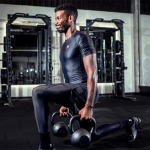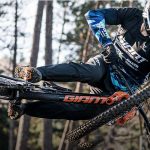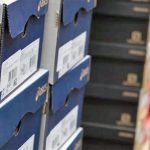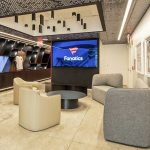Lady Gaga’s record-breaking concert in Rio de Janeiro on May 3 was a tough act to follow. However, Brazilian footwear manufacturer Vulcabras S.A. did its best, with the 75-year-old footwear company suggesting in its Q1 financial report that it began 2025 at “a fast pace” as sales jumped over 17 percent for the quarter on a nearly 54 percent increase in the e-commerce business across all brands.
The company, which manages the Under Armour, Mizuno and Olympikus brands in South America, said company results reflected the “consistent execution of its vertically integrated business model” focused on product innovation, brand strengthening and operational efficiency.
Vulcabras reported that net operating revenue reached R$701.2 million in the 2025 first quarter, a 17.4 percent increase compared to the 2024 first quarter and marked the 19th consecutive quarter of growth.
The company said the e-commerce channel was a primary reason for the double-digit sales growth in the quarter, as the channel “reaffirmed its relevance within strategy in Q1, serving as a natural extension between the brands and consumers.
Driven by a strategy focused on “digital positioning and excellence in the purchasing journey,” the e-commerce channel recorded net revenue of R$118.4 million in the period, representing a 53.8 percent increase compared to the prior-year Q1 period. This strong performance led e-commerce to account for 16.9 percent of the net revenue for the quarter, an increase of 4.0 percentage points compared to the 2024 first quarter, “further reinforcing its growing role within channel mix.”
Vulcabras S.A. reports in the Brazilian real (R$) currency.
The company said in its report that the e-commerce channel continued its strong growth trajectory during the first quarter, posting a 53.8 percent increase and reaching revenue of R$118.4 million, which accounted for 16.9 percent of the total net revenue.
“This performance helped boost the purchasing journey, strengthen brand positioning and deepen customer relationships without the need for aggressive promotional campaigns,” the company said.
In Q1, total gross volume invoiced reached 7.1 million pairs/pieces, representing a 5.6 percent increase compared to the 6.7 million recorded in the prior-year Q1 period. The main highlights by category were
Athletic Footwear, which registered a 3.5 percent increase compared to the 2024 first quarter. The rise in consolidated volume was mainly driven by domestic market sales. The highlight of the category was the Corre line from the Olympikus brand, which maintained strong consumer acceptance and consistent performance in the running segment.
Others Footwear and Others, which includes flip-flops, women’s and kids, posted a 23.5 percent compared to the 2024 first quarter, with notable growth in the flip-flops and professional-use boots categories, which showed significant progress during the period.
Apparel and Accessories recorded an 0.8 percent increase compared to the same quarter of the previous year, which was mainly driven by improved retail performance in the domestic market.
The Brazilian footwear retail sector reportedly showed signs of recovery in the 2025 first quarter, which is said to be driven by the strengthening of the Brazilian domestic market and increased consumer spending fueled by declining unemployment levels and rising household income. However, the foreign market, including sales, remained under pressure due to significant challenges, particularly in Peru and Argentina, where adverse economic conditions reportedly continue to pose specific obstacles in each country.
Category Summary
- The Athletic Footwear category reportedly maintained its growth trajectory in Q1, posting an 18.5 percent increase in Q1 compared to the 2024 first quarter. This performance was said to be mainly driven by the expansion of the Domestic market, while revenue from Foreign markets declined. All three brands reportedly recorded positive performance, with a particular highlight on the running category at Olympikus, boosted by the success of the Corre line.
- The Others Footwear and Others category grew by 26.4 percent versus the 2024 first quarter, reflecting higher sales of flip-flops and boots designed for professional use.
- The Apparel and Accessories category recorded a 3.0 percent growth compared to the 2024 first quarter, primarily driven by improved retail performance in the domestic market.
Market Summary
- Domestic market net revenue totaled R$671.3 million in Q1, representing a 19.3 percent increase compared to the prior-year Q1 period, when it reached R$562.9 million. This positive result was driven by growth across all product categories, with Athletic Footwear once again standing out for its strong and consistent performance compared to the 2024 first quarter.
- Foreign Market net revenue totaled R$29.9 million in Q1, representing a 13.1 percent decline from the R$34.4 million recorded in the prior-year Q1 period. Although operations in Peru showed a positive performance during the quarter, direct exports from Brazil, primarily focused on the Argentine market, remained in decline, reflecting the drop in consumer demand in that country.
Brand Summary
Olympikus
The Olympikus brand is celebrating its 50th anniversary this year, continuing its upward path, propelled by new launches within the Corre family and the special Corre 4 Strava collaboration. This partnership marked the second consecutive year of the Olympikus Corre model being the most used by Brazilian runners on the Strava app. The brand launched a special edition of the Corre 4 Strava to celebrate this milestone in partnership with the app.
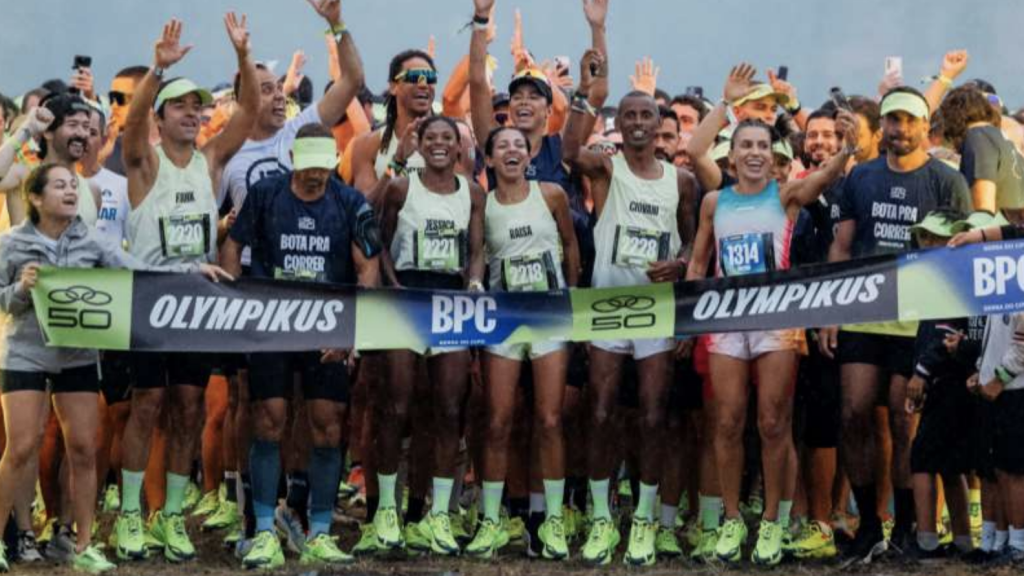
Mizuno
Mizuno reportedly advanced its innovation and portfolio expansion strategy in performance running with the launch of the Neo Zen, a shoe designed for daily training and long distance. The brand also introduced new colors of the Neo Vista, “reinforcing its position in the segment.”
- The Mizuno Running Station, a hub for runners at USP, strengthened the connection with the performance running community by serving as a weekend gathering spot for runners and hosting recurring brand activations. The brand also showcased the Onihayai Pack, a special collection inspired by Japanese aesthetics and the concept of supernatural speed, which gained visibility during the Osaka Marathon, a premier running event on the international calendar.
- In the sportstyle segment, Mizuno reportedly strengthened its presence with hosted events held at the Mizuno Listening Store, a pop-up in São Paulo, designed to bring the brand closer to a young, urban consumer in a setting that blended music, culture and lifestyle highlighted by the Mizuno AM Sessions project.
- In football, the launch of the Silver Pack, a special-edition boot color collection, featured coordinated activations with all sponsored players, increasing visibility and reinforcing the category’s presence.
Under Armour
Under Armour continued its diversification strategy and strengthened its performance and sportstyle segments. The company said UA expanded its portfolio in Q1 with strategic launches across running, training, basketball, and sportstyle segments, strengthening its presence in multiple athletic categories.
- In the running category, UA launched the Charged Quicker 2, designed for runners who are looking for lightness, agility and quick responsiveness in a shoe and broadened its range to meet the needs of various runner profiles, as well as the SlipSpeed Mega, a versatile shoe that combines technology and comfort for training and everyday wear.
- In the sports lifestyle category, the brand introduced the Emerge, a shoe that combines cushioning with a contemporary design. It also released new colors for the Reps 2, consolidating it as one of its “most versatile options” for functional training.
- In basketball, the brand advanced the global Stephen Curry franchise, releasing new Curry 12 colorways, Gravity and Extraterrestrial, further strengthening its position among elite athletes and fans.
“These editions combine bold design with advanced UA Flow technology, delivering superior traction, lightweight construction, and optimized performance, further strengthening the positioning among elite athletes and its relevance in the global high-performance sports arena,” the company pitched.
Gross Margin
The company reported that the increase in production and sales volume, combined with higher average prices, offset gross margin impacts despite significant pressure on the cost of goods sold. The manufacturing plants resumed full operations following the collective vacation period, and gradually, efficiency indicators reached planned levels. The company achieved targeted production volumes, and the cost of manufactured goods remained within expectations.
In the 2025 first quarter, the company reported gross profit of R$281.9 million, representing a 17.5 percent increase compared to the R$239.9 million recorded in the prior-year Q1 period. The consolidated gross margin remained stable at 40.2 percent of net sales, in line with the result reported in the 2024 first quarter. The company said it is important to highlight that, if not for the reinstatement of payroll taxes, the gross margin would have been 0.4 percentage points higher than reported.
“This clearly demonstrates the direct impact of the fiscal policy change on the cost structure,” Vulcabras noted.
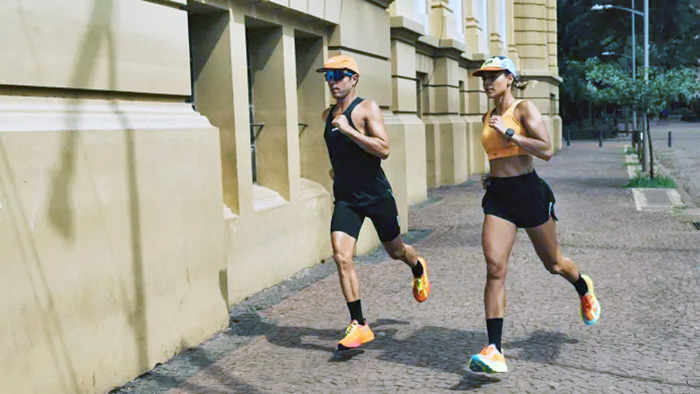
Net Financial Result
First quarter net financial result was “positive” at R$2.3 million, reportedly reflecting a significant improvement compared to the financial income of R$0.8 million recorded in the 2024 first quarter. When comparing Q1 2025 to the 2024 first quarter, the variation was mainly due to a reduction in both financial income and expenses, driven by lower levels of financial investments and indebtedness throughout the period.
Also contributing to this result was the recognition of foreign exchange gains, fueled by the appreciation of assets resulting from the sharp strengthening of the U.S. dollar against the Brazilian real.
Net Income
Vulcabras’ net income in Q1 saw “significant growth,” reportedly driven by strong operational performance combined with efficient financial and tax management. Net income amounted to R$106.1 million in the period, representing a 19.5 percent increase compared to the prior-year Q1 period, when net income totaled R$88.8 million. The net margin for the quarter reached 15.1 percent of net sales, reflecting an increase of 0.2 percentage points compared to the 14.9 percent recorded in the 2024 first quarter.
EBITDA
First quarter EBITDA totaled R$140.4 million, representing a 14.7 percent increase compared to the R$122.4 million recorded in the prior-year Q1 period.
Despite the increase in EBITDA in absolute terms, the EBITDA margin showed a slight decline when comparing the 2024 first quarter to Q1, moving from 20.5 percent to 20.0 percent.
“This reduction was mainly due to higher commercial expenses, particularly because of the faster growth of the e-commerce channel, which carries higher operational costs,” the company noted. “Even so, the EBITDA margin remained at a solid level, consistent with the operational structure, underscoring its adaptability and resilience in the face of the challenges.”
Capital Allocation|
Vulcabras reinforces its commitment to maximizing shareholder returns and maintaining a conservative capital management strategy. In line with this approach, and considering the recent growth along with expectations for 2025, the company said it plans to allocate capital expenditures (CapEx) toward expanding its industrial complex.
In Q1, the company made CapEx investments totaling R$48.4 million in property, plant, equipment, and intangible assets, representing a 63.0 percent increase compared to the amount invested in the prior-year Q1 period. The main investments were directed toward expanding the industrial complex, with the acquisition of new equipment aimed at increasing production capacity while maintaining a focus on modernization and greater efficiency capture throughout the production process.
“This reinforces the culture of continuously seeking optimal capital allocation, as the decision to continue investing is primarily guided by the expectation of short-term payback,” the company noted in its report.
The Company
Vulcabras has been operating in the Brazilian footwear sector for 72 years and during this period it has consolidated itself as the largest athletic footwear manufacturer in Brazil and has become the manager of leading brands in their respective segments, such as: Olympikus, national champion in tennis sales; Under Armour, one of the world’s largest brands of clothing, footwear and sports accessories; and Mizuno, the performance brand that believes in the value of sport and supports the journey of everyone who gives their best, regardless of who they are, level and type of sport.
Founded in July 1952 with the incorporation of the company Industrial Brasileira de Calçados Vulcanizados SA, in São Paulo, it manufactured leather shoes with vulcanized rubber soles, and one of its first icons was the Vulcabras 752, whose name was a reference to the month and year of the company’s founding.
In 1973, the company started the production of sports brands in Brazil, and, since then, the company has specialized in delivering technology in shoes for the “democratization of sports performance.”
The shoes produced by the company are found in stores throughout Brazil, with an extensive commercial team that serves more than 10,000 customers nationwide and in other South American countries, in e-commerce and the brands’ owned stores. There are more than 800 new models per year, designed and developed in the largest technology and development center for athletic shoes in Latin America, located in Parobé, Rio Grande do Sul.
The company manufactures its products in two factories in the Northeast region, in Horizonte, Ceará and Itapetinga, Bahia. Its administrative center is in Jundiaí, São Paulo, in addition to a Logistics Distribution Center for the e-commerce channel located in Extrema in the state of Minas Gerais. These five units in Brazil directly employ over 21,100 workers. The company also has a branch with a distribution center in Peru.
Images courtesy Vulcabras S.A.


